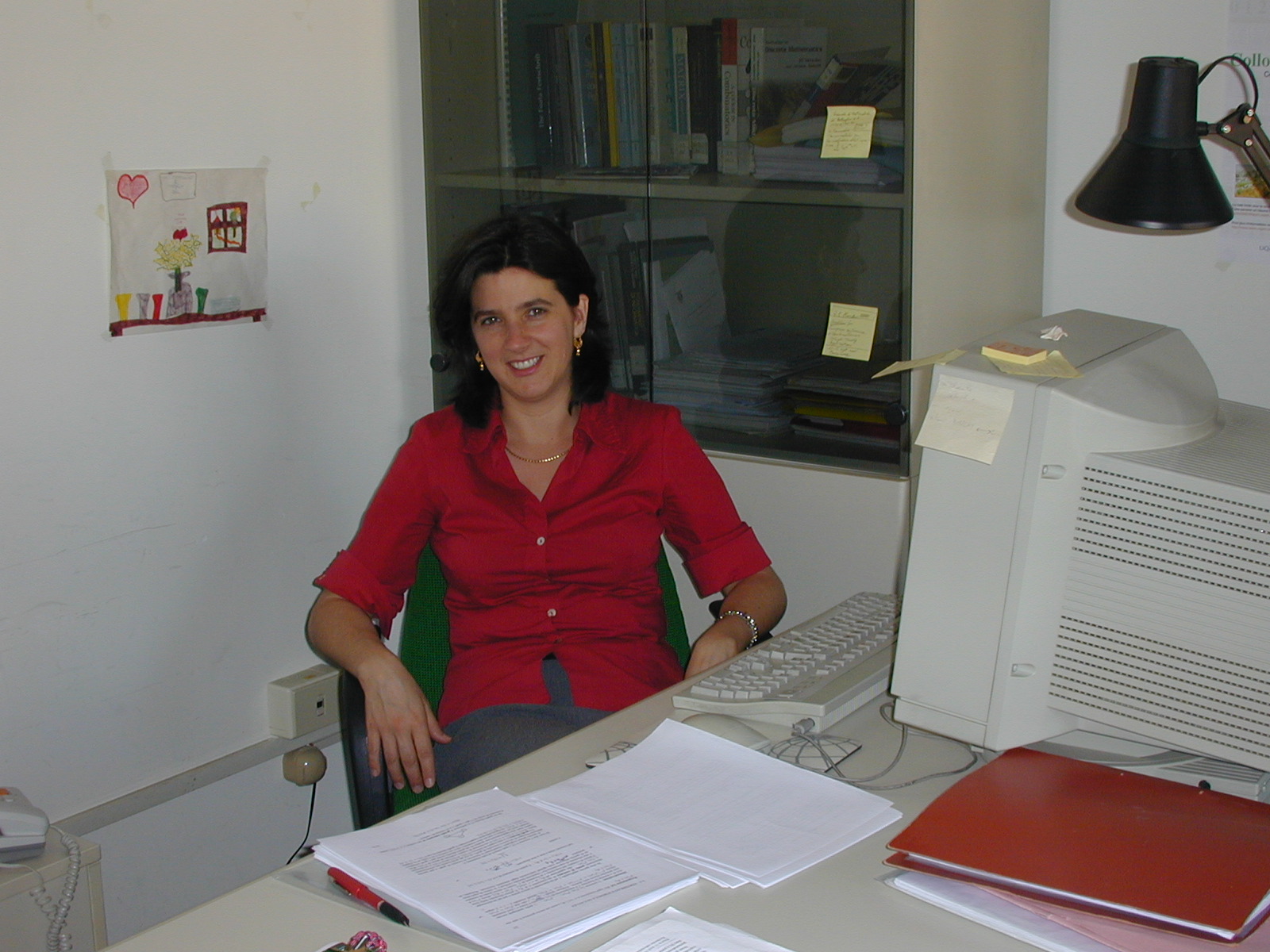
Associate Professor

 |
Claudia
Malvenuto Associate Professor |
 |
| claudia AT mat.uniroma1.it | Phone | +39.06.49.91.32.10 | |
| Address | Dipartimento
di Matematica
Sapienza Università di Roma Piazzale Aldo Moro, 5 - 00185 - Roma Italia |
Fax | +39.06.44.70.10.07 |
| POESIA
|
LONGING
Come to me in my dreams, and then
By day I shall be well again!
For so the night will more than pay
The hopeless longing of the day.
Come, as thou cam'st a thousand times,
A messenger from radiant climes,
And smile on thy new world, and be
As kind to others as to me!
Or, as thou never cam'st in sooth,
Come now, and let me dream it truth,
And part my hair, and kiss my brow,
And say, My love why sufferest thou?
Come to me in my dreams, and then
By day I shall be well again!
For so the night will more than pay
The hopeless longing of the day.
- - - - - - - - - - - - - - - - - - - - - - - - - - - -
Vieni nei miei sogni! e allora
potrò guarire il giorno dopo.
Solo così la notte ripagherà
l'attesa senza speranza del giorno
Vieni, come fai mille volte,
tu messaggero da climi radiosi,
porta un sorriso sul tuo nuovo mondo
con gli altri sii gentile come con me!
ma se devi venire a soccorrermi,
vieni adesso, avvera il mio sogno,
carezzami i capelli, baciami le ciglia,
dimmi - amore, perché soffri?
(Traduzione: C.M.)
*
DOVER BEACH
The sea is calm tonight.
The tide is full, the moon lies fair
Upon the straits; on the French coast the light
Gleams and is gone; the cliffs of England stand,
Glimmering and vast, out in the tranquil bay.
Come to the window, sweet is the night air!
Only, from the long line of spray
Where the sea meets the moon-blanched land,
Listen! you hear the grating roar
Of pebbles which the waves draw back, and fling,
At their return, up the high strand,
Begin, and cease, and then again begin,
With tremulous cadence slow, and bring
The eternal note of sadness in.
Sophocles long ago
Heard it on the Aegean, and it brought
Into his mind the turbid ebb and flow
Of human misery; we
Find also in the sound a thought,
Hearing it by this distant northern sea.
The Sea of Faith
Was once, too, at the full, and round earth's shore
Lay like the folds of a bright girdle furled.
But now I only hear
Its melancholy, long, withdrawing roar,
Retreating, to the breath
Of the night wind, down the vast edges drear
And naked shingles of the world.
Ah, love, let us be true
To one another! for the world, which seems
To lie before us like a land of dreams,
So various, so beautiful, so new,
Hath really neither joy, nor love, nor light,
Nor certitude, nor peace, nor help for pain;
And we are here as on a darkling plain
Swept with confused alarms of struggle and flight,
Where ignorant armies clash by night.